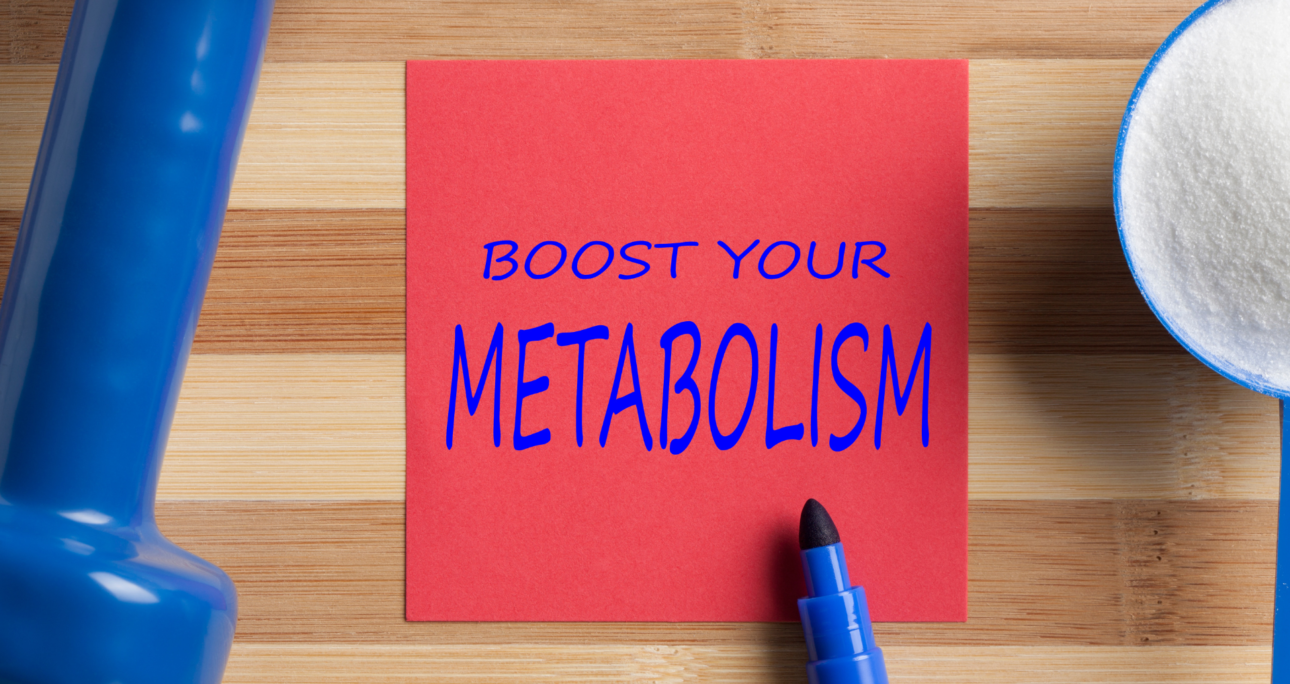If you’re wondering how to speed up your metabolism to shed those extra pounds and feel more energetic throughout the day, you’re in the right place. The concept of a “fast metabolism” often surfaces in weight loss discussions, and for good reason. Your metabolism, the intricate process by which your body converts food and drinks into energy, plays a crucial role in how many calories you burn at rest. While genetics do play a part, the good news is that there are numerous science-backed strategies you can implement to naturally boost your metabolic rate. This comprehensive guide, drawing on the latest research and nutritional expertise, will delve into effective methods to rev up your metabolism, separate fact from fiction, and inspire you with a real-life success story. So, if you’re ready to unlock your body’s natural calorie-burning potential, keep reading.
Contents
- Understanding Your Metabolism: The Key to Weight Management
- The Power of Protein: Fueling Your Metabolic Fire
- High-Intensity Interval Training (HIIT): The Metabolic Accelerator
- Strength Training: Building a Metabolically Active Body
- The Story of Sophia: A Journey to a Faster Metabolism
- The Role of Sleep: Resting Your Way to a Faster Metabolism
- Hydration and Metabolism: The Essential Connection
- The Truth About Meal Frequency: Does Eating More Often Boost Metabolism?
- Debunking Metabolism Myths: Separating Fact from Fiction
- Conclusion
Understanding Your Metabolism: The Key to Weight Management
To effectively speed up your metabolism, it’s essential to first grasp what it entails. Metabolism is not just one process, but a series of chemical reactions that occur within your body to maintain life. These reactions are broadly categorized into two phases: catabolism (the breakdown of molecules to release energy) and anabolism (the building of molecules, requiring energy). Your basal metabolic rate (BMR) represents the number of calories your body burns at rest to maintain basic functions like breathing, circulation, and cell production. Factors such as age, sex, genetics, muscle mass, and body size influence your BMR. However, lifestyle choices can significantly impact the overall rate at which you burn calories. Therefore, understanding these factors is the first step towards learning how to increase metabolism.
The Power of Protein: Fueling Your Metabolic Fire
One of the most effective ways to boost your metabolism is through your dietary choices, and protein stands out as a metabolic powerhouse. Protein has a higher thermic effect of food (TEF) compared to carbohydrates and fats. This means your body burns more calories digesting, absorbing, and metabolizing protein. Studies have shown that increasing protein intake can lead to a significant rise in metabolic rate. For instance, a study published in the American Journal of Clinical Nutrition found that participants who increased their protein intake to 30% of their daily calories experienced a notable increase in their resting metabolic rate (Westerterp-Plantenga et al., 2012). Furthermore, protein helps preserve and build lean muscle mass, which is metabolically more active than fat tissue. Including sources like lean meats, poultry, fish, eggs, dairy, legumes, nuts, and seeds in your diet can be a game-changer when it comes to naturally increase metabolism.
High-Intensity Interval Training (HIIT): The Metabolic Accelerator
Beyond diet, physical activity plays a pivotal role in how to speed up metabolism. While all forms of exercise are beneficial, High-Intensity Interval Training (HIIT) has emerged as a particularly effective method for boosting metabolic rate. HIIT involves short bursts of intense exercise followed by brief recovery periods. This type of training not only burns a significant number of calories during the workout but also leads to a phenomenon known as the “afterburn effect” or Excess Post-exercise Oxygen Consumption (EPOC). EPOC refers to the elevated rate of oxygen consumption and calorie burning that continues even after you’ve finished exercising. Research published in the Journal of Obesity indicates that HIIT workouts can lead to greater post-exercise energy expenditure compared to continuous moderate-intensity exercise (Børsheim & Bahr, 2003). Incorporating HIIT sessions a few times a week can be a powerful tool to increase metabolism naturally.
Reference:
- Børsheim, E., & Bahr, R. (2003). Effect of exercise intensity, duration and mode on post-exercise oxygen consumption. Sports Medicine, 33(14), 1037–1060. https://doi.org/10.2165/00007256-200333140-00002
Strength Training: Building a Metabolically Active Body
While HIIT focuses on short bursts of intensity, strength training is crucial for long-term metabolic enhancement. Muscle tissue is more metabolically active than fat tissue, meaning it burns more calories at rest. As you build lean muscle mass through strength training, your basal metabolic rate increases, making it easier to speed up your metabolism even when you’re not actively exercising. Studies have consistently shown a positive correlation between muscle mass and resting metabolic rate. For example, a review article in Obesity Reviews highlighted that resistance training can lead to significant increases in lean body mass and resting energy expenditure (Westcott, 2012). Incorporating regular strength training sessions, targeting all major muscle groups, is therefore vital for those looking to boost metabolism effectively.
The Story of Sophia: A Journey to a Faster Metabolism
Let me tell you about Sophia. Sophia had struggled with her weight for years, trying various fad diets with little lasting success. She felt sluggish and her energy levels were consistently low. One day, feeling frustrated, she decided to consult a nutritionist. This nutritionist, grounded in scientific principles, didn’t promise a quick fix but instead focused on sustainable lifestyle changes to increase metabolism naturally.
Sophia’s initial plan involved incorporating a protein-rich breakfast every morning, including Greek yogurt with berries and nuts. She also started adding lean protein sources like grilled chicken and fish to her lunch and dinner. Furthermore, her nutritionist introduced her to High-Intensity Interval Training (HIIT) twice a week, starting with short 20-minute sessions. Initially, Sophia found the intense bursts challenging, but she gradually noticed an increase in her energy levels.
In addition to HIIT, Sophia began strength training twice a week, focusing on exercises like squats, lunges, push-ups, and rows. Slowly but surely, she started to feel stronger and noticed her clothes fitting differently. Over several months, Sophia not only lost a significant amount of weight but also reported feeling more energetic and vibrant. Her story beautifully illustrates how to speed up your metabolism through consistent and scientifically sound strategies. Sophia’s journey wasn’t about restrictive dieting; it was about nourishing her body with the right foods and challenging it with the right types of exercise to boost metabolism from within.

The Role of Sleep: Resting Your Way to a Faster Metabolism
While diet and exercise are key players in how to increase metabolism, adequate sleep is often overlooked. Chronic sleep deprivation can disrupt various hormones that regulate metabolism, including ghrelin (the hunger hormone) and leptin (the satiety hormone). Studies have shown that insufficient sleep can lead to increased hunger, cravings for unhealthy foods, and a decrease in metabolic rate. Research published in the journal Sleep found that restricting sleep to four hours per night for just a few days resulted in a significant reduction in resting metabolic rate (Nedeltcheva et al., 2010). Prioritizing 7-9 hours of quality sleep each night is therefore crucial for maintaining a healthy metabolism and supporting weight management efforts. Therefore, if you’re looking to naturally increase metabolism, ensure you’re getting enough rest.
Reference:
- Nedeltcheva, A. V., Kilkus, J. M., Imperial, J., Schoeller, D. A., & Penev, P. D. (2010). Insufficient sleep undermines dietary efforts to reduce adiposity. Annals of Internal Medicine, 153(7), 435–441. https://doi.org/10.7326/0003-4819-153-7-201010050-00006
Hydration and Metabolism: The Essential Connection
Water is vital for virtually every bodily function, including metabolism. Many chemical reactions involved in energy production require water. Dehydration can slow down these processes, potentially hindering your metabolic rate. Research suggests that drinking water can temporarily boost your metabolism. A study published in The Journal of Clinical Endocrinology & Metabolism found that drinking 500 ml of water increased metabolic rate by 30% for about an hour in healthy individuals (Boschmann et al., 2003). Staying adequately hydrated throughout the day is a simple yet effective way to support a healthy metabolism and overall well-being. So, if you’re wondering how to speed up your metabolism, make sure you’re drinking enough water.
The Truth About Meal Frequency: Does Eating More Often Boost Metabolism?
One common belief is that eating frequent, small meals throughout the day can significantly boost metabolism. The idea behind this is that each time you eat, your body expends energy to digest the food (the thermic effect of food). Therefore, more frequent meals should theoretically lead to a higher overall calorie burn. However, the scientific evidence on this topic is somewhat mixed. While some studies suggest a slight increase in TEF with more frequent meals, the overall daily calorie expenditure tends to be similar when the total daily caloric intake and macronutrient composition are the same, regardless of meal frequency.
A review published in the British Journal of Nutrition concluded that there is no strong evidence to support the claim that eating more frequently boosts metabolism or aids in weight loss compared to eating fewer, larger meals when total calorie intake is controlled (Anderson et al., 2017). Therefore, while meal timing can be important for managing hunger and energy levels, it may not be the most critical factor in how to speed up your metabolism. Focus on the quality and quantity of your food rather than strictly adhering to a specific meal frequency to naturally increase metabolism.
Debunking Metabolism Myths: Separating Fact from Fiction
It’s easy to come across various claims about how to speed up metabolism, but not all of them are backed by science. Let’s debunk some common myths:
- Myth 1: Eating late at night slows down your metabolism. The truth is that your body processes calories regardless of the time of day. What matters more is the total number of calories you consume throughout the day and the quality of those calories. While large, heavy meals right before bed can disrupt sleep, the timing of your meals, in isolation, doesn’t significantly impact your metabolic rate.
- Myth 2: Certain “fat-burning” supplements can drastically increase your metabolism. Many over-the-counter supplements claim to boost metabolism, but the evidence supporting their effectiveness is often weak or inconclusive. Some may contain stimulants that can temporarily increase heart rate and calorie expenditure, but these effects are usually modest and can come with potential side effects. It’s always best to focus on sustainable lifestyle changes rather than relying on quick-fix supplements to boost metabolism.
- Myth 3: People with a “slow metabolism” are destined to gain weight. While genetics do play a role in basal metabolic rate, the impact of lifestyle factors such as diet and physical activity is far more significant. Even individuals with a naturally lower BMR can effectively manage their weight by adopting healthy habits that naturally increase metabolism.
- Myth 4: Skipping meals boosts your metabolism. In reality, skipping meals can often have the opposite effect. When you drastically restrict calories or skip meals, your body may go into “starvation mode,” conserving energy and potentially slowing down your metabolic rate to preserve fuel. Consistent and balanced eating patterns are generally more beneficial for maintaining a healthy metabolism.
Understanding these myths is crucial in adopting realistic and effective strategies to speed up your metabolism.
Conclusion
Boosting your metabolism is not about finding a magic pill or following unsustainable fad diets. Instead, it’s about making informed and consistent lifestyle choices grounded in scientific evidence. By prioritizing protein intake, incorporating regular high-intensity interval training and strength training, ensuring adequate sleep and hydration, and understanding the nuances of meal frequency, you can effectively increase metabolism naturally and achieve your weight management and energy goals. Just like Sophia, by embracing these strategies, you can unlock your body’s natural potential for a faster metabolism and embark on a journey towards a healthier and more vibrant you. Remember, consistency is key, and every positive change you make contributes to a more energized and metabolically active life.





